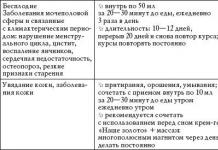A tattoo inscription in Spanish always looks tempting and attractive. Unlike English, this is not the most common language on Earth, so few people can understand the meaning of the phrases. In the article, we will analyze beautiful phrases in Spanish for tattoos, get acquainted with their translation, and also consider the work of masters from all over the world in the photo.
Tattoo inscriptions in Spanish with translation
With the help of Spanish tattoos, you can confess your love to a loved one, reflect your mood in life, or find motivation that helps in life. Below, we will look at various Spanish expressions that are popular among body art lovers around the world.

"Dream" in Spanish - "Sueño"
- Never give up. Nunca te rindas. A great motivational phrase for a tattoo that will help you achieve your goals.
- Born to be happy. Nacido para ser feliz. Such a tattoo in Spanish is suitable for a romantic girl who treats life with an open mind.
- Dreams Come True. Los suenos se hacen realidad. Various Spanish catchphrases are popular among tattoo lovers. This expression is no exception.
- Beautiful. Hermosa. Words that are suitable as a tattoo for any girl.
- Forever. por siempre. All people invest a different meaning in this tattoo. Therefore, what it will mean for you is a mystery to us.
- My heart. Mi corazon. A simple but deep expression can be filled both in the form of an independent tattoo inscription, and supplement it with any words that are suitable in meaning.
- Every man for himself. Cada uno a lo suyo. The modern world is cruel. The one who counts can also stuff this Spanish expression on the body.
- We drink, we sing and we love. Bebemos cantamos y amamos. This tattoo inscription perfectly reflects the life of the Spanish people.
- My life my rules. Mi vida mi reglos. This phrase in Spanish will find its place on the body of a person who lives according to his own established rules.
- Everything that happens is for the best. Todo lo que pasa es para major. Quote in Spanish suitable for people who believe in destiny.
- Follow your dream. Sigue el sueno. A parting word that reminds a person to never give up when pursuing a dream.
- Nothing is impossible. No hay nada inpossible. A motivational expression that says that a person can achieve a lot on his own. A great tattoo for purposeful people.
- I believe in my star. Creo en mi Estrella. Every person has something that helps him to live. In this case, it's a star.
Phrases in Spanish with translation for a tattoo
Having chosen any phrase for tattooing in Spanish, try to make sure that its translation is correct with a native speaker, and not with the help of popular online services. After all, the mistakes made in the inscription will not be so easy to correct.

- Always be yourself. Siempre se tu mismo.
- Life is a game. La vida es un juego.
- May the force be with me. Que la fuerza venga conmigo.
- Suffering passes, but love is eternal. El sufrimiento pasa, pero el amor es eterno.
- Stop dreaming, stop living. Deja de soñar, deja de vivir.
- You can't tear a single page out of life, but you can throw the whole book into the fire. No puedes arrancar una sola pagina de la vida, pero puedes tirar todo el libro al fuego.
- Only those with a broken heart know the truth about love. Solo con el corazón roto saben la verdad sobre el amor.
- The best way to fulfill a dream is to wake up. La mejor manera de cumplir un sueño es despertarse.
- I'm looking to the future because that's where I'm going to spend the rest of my life. Miro hacia el futuro porque es allí donde voy a pasar el resto de mi vida.
- Life is the most exciting opportunity. La vida es la oportunidad más emocionante.
- Expect the best, prepare for the worst. Espera lo mejor, prepare para lo peor.
Quotes in Spanish with translation for tattoos

Beautiful quotes in Spanish are great for both women and men. Indeed, in this language you can talk about a lot: about love, about life, about faith, etc. Below is the TOP 5 of the most interesting and best Spanish sayings.
About love

Beautiful words about love in Spanish are great for confessing your feelings to your second half. Below are the best quotes suitable for inking as a tattoo.
- You are my life. Eres mi vida.
- You are my sun. Tu eres mi sol.
- I go crazy about you. Estoy loco por ti.
- Better to love and lose than never love. Es mejor amar y perder que nunca amar.
- Life without love is life without the sun. La vida sin amor es vida sin sol.
About life

Spanish quotes about life remind you to enjoy every day you live. By applying such phrases to your body, you can show others your mood, goals and attitude towards life. We suggest that you familiarize yourself with the selected expressions that are suitable as a motive for Spanish tattoo inscriptions.
- Life. la vida. Such an inscription is suitable for those people who want to show the deep meaning of the tattoo in one word.
- That is life. Asi es la vida. These Spanish words indicate that a person is ready to accept and overcome any life trials.
- Life is Beautiful. La vida es bella. A great phrase in Spanish that will suit an open and cheerful person.
- Enjoy the little things, they make life beautiful. Disfruta las pequeñas cosas, hacen la vida hermosa.
- Life is short, so enjoy it to the fullest. La vida es corta, así que disfrútala al máximo.

religious

Tattoos with religious themes are not inferior in popularity to other Spanish expressions. Most often, such inscriptions are stuffed as a body amuletprotecting a person from the influence of negative thoughts and actions of other people.
- Every step with God. Cada paso con Dios. This phrase is suitable for believers who want to be under the supervision of God.
- I walk with God. Camino con dios. Text similar to above. The meaning, in general, remains the same.
- Under the wing of an angel. Bajo el ala de un angel. A beautiful phrase that can become a wearable talisman for a person.
- Bless and save. Salvame y guardame. The most common inscription, which is often stuffed by believers, hoping for protection "from above".
- My angel is always with me. Mi angel siempre esta conmigo. / My angel will be with me. Mi angel estar conmigo. These spanish tattoos will look great on both male and female bodies. The phrase can be used as a talisman against the evil eye, damage and various life failures.

Aphorisms in Spanish with translation

Aphorisms are expressions with deep meaning. Such tattoos are a wonderful choice for those who appreciate individuality and unpredictability in people. For long inscriptions printed in Spanish, it is better to choose large areas on the body that allow you to maintain the required spacing between letters. Otherwise, in the future you risk getting black unreadable stripes. Remember this.
- Life is not measured by the number of breaths we take, but by the moments that take our breath away. La vida se mide no por la cantidad de respiraciones que tomamos, sino por los momentos que nos quitan el aliento.
- A friend is someone who knows everything about you, but still loves you. Un amigo es alguien que sabe todo sobre ti, pero de todos modos te ama.
- We're all in a ditch, but some of us are stargazing. Todos estamos en una zanja, pero algunos de nosotros estamos mirando las estrellas.
- Keep people at arm's length. Mantenga a las personas a distancia.
- Vain people never hear anything but praise. La gente vanidosa nunca escucha nada más que elogios.
Tattoo inscriptions in Spanish: photo
In the presented photo gallery you can get acquainted with the different styles used for applying Spanish inscriptions.
You have booked a ticket. Your luggage is already packed. You can't wait to start your journey in a country where everyone speaks Spanish.
There is another simple thing you can do that will come in handy on your trip: learn a few Spanish phrases! Travel will definitely be much more fun and rewarding if you can communicate with native speakers.
In this article, we have selected the most popular Spanish phrases that will help you “survive” your trip.
greetings
Hispanic culture is based on a cult of courtesy, you should also always be courteous and say "hello" and "how are you?" And don't worry about making mistakes, others will do their best to understand you and make sure you understand them. Just try your best and they will be happy to see your efforts.
- Good morning - Buenos dias(Buenos dias)
- Good afternoon - Buenas tardes(buenas tardes)
- Good evening - Buena nights(buenas noches)
- Hola (hola) is "hello". You can say hello to people you already know.
- ¿Como está?(komo esta) - a way to ask “how are you?” in case you don't know the person, ¿Como estas?(como estas) - if you know him.
- If they ask you “how are you?”, answer “ok, thank you” - bien, gracias(bien, gracias) because you are also a polite person.
- Never forget keywords: please - por favor(por favor) - and thank you - gracias(gracias).
- When you introduce yourself to someone, you say “Mucho gusto”(much thickly), and you will hear the same in response. It means "nice to meet you".
- If you suddenly run into an insurmountable language barrier, switch to universal English, just make sure with your interlocutor: ¿Habla ingles?(Abla Ingles)? - Do you speak English?
Useful Basic Vocabulary
In everyday communication, even the simplest words and phrases to remember will come in handy. You can always use "I want", "I like", "Do you have...?", and if you don't know how to complete a phrase (for example, you can't remember the right noun), just point to the subject.
- I want, I don't want Yo quiero, yo no quiero(yo kyero, yo no kyero)
- I would like (more politely) - Me gustaria(me Gustaria)
- Where is? - ¿Donde está?(dongde esta)?
- What is the price? - ¿Cuánto cuesta?(cuanto cuesta)?
- How much time? - ¿Que hora es?(ke ora es)?
- You have? - ¿Tiene?(tiene)?
- I have, I don't have Yo tengo, yo no tengo(yo tengo, yo no tengo)
- I understand, I don't understand Yo entiendo, yo no entiendo(yo entiendo, yo no entiendo)
- You understand - ¿Entiende?(entiende)?
Simple verb forms: where is, I want, I need
You can express many thoughts and requests using simple verb forms. The important thing is that you can say a lot of things using "I want", "I need", "I can", "I could" or "where is" and then just add a noun. It may not be so easy for you, but you will definitely be understood.
- I want a ticket, a hotel, a taxi - Yo quiero un boleto, un hotel, un taxi(yo kyero un boleto, un hotel, un taxi)
How can I get there?
If you're a little confused or not sure how to get somewhere, you need a few simple phrases to help you find your way. "Where is?" in Spanish it sounds like “¿dónde está?” (dongde esta?), let's see this question in action based on a few examples:
- Where is the railway station? - ¿Dónde está la estación de ferrocarril?(donde esta la estación de ferrocarril) or “autobuses” (autobuses).
- Where is the restaurant? - ¿Dónde está un restaurante?(donde esta un restaurante)?
- Train? - ¿Untren?(un tren)?
- Street …? - ¿La calle...?(la sai)?
- Bank? - ¿Un banco?(un banco)? - I am looking for the restroom. - ¿Dónde está el baño?– (donde esta el banyo)?
- I want a hotel, I want a hotel with a bathroom Yo quiero un hotel, yo quiero un hotel con baño(Ye kyero un hotel, yeo kyero un hotel kon banyo)
- I need - Yo necesito(yo nesesito). Very useful phrase, just add the noun:
Yo necesito un hotel, un cuarto, un cuarto con baño– (yo neseshito un hotel, un quarto son banyo) - Where is the exchange office located? where is the bank located? - ¿Dónde está una casa de cambio?(donde esta una casa de cambio);
¿Dónde está el banco?(donde esta el banco)? - Money - Dinero (dinero).
Driving directions
Once you ask a question about how to get somewhere, you will hear the answer in Spanish. Remember how Spanish sounds like a few simple directions someone might give you, such as telling you to turn right or left or go straight ahead. Heed these keywords:
- Right side - a la derecha(a la derecha)
- Left-hand side - a la izquierda(a la izkjerda)
- Straight ahead - derecho(derecho)
- On the corner - en la esquina(en la aeskina)
- One, two, three, four blocks a una cuadra, a dos, tres, cuatro cuadras- (a una cuadra, a dos, tres, cuatro cuadras)
In a restaurant: what do you want to eat or drink?
These are probably the phrases you will need the most when you are in a restaurant. Order something with the help of someone you already know "quiero"(kyero) or "quisiera"(kissera) - “I want” or “I would like.” And don't forget to say “por favor” And "gracias"!
- Table - Una mesa(una mesa)
- Table for two, three, four Una mesa para dos tres, cuatro(una mesa para dos, tres, cuatro)
- Menu - Un menu(ung menu)
- Soup - Sopa(sopa)
- Salad - Ensalada(ensalada)
- Hamburger (also a must!) Hamburguesa(amburgesa)
- With ketchup, mustard, tomato, lettuce - Con salsa de tomate, mostaza, tomate, lechuga- (con salsa de tomate, mostaza, tomate, lechuga)
- Snack - Una entrada(una entrada)
- Dessert - Un postre(un postre)
- Drink - Una bebida(una babyda)
- Water - Agua(agua)
- Red wine, white wine Vino tinto(bino tinto), wine blanco(bino blanco)
- Beer - Cerveza(serveza)
- Coffee - un café(un cafe)
- Call the waiter or waitress - ¡Señor! or ¡Señorita!(senor or senorita)
- Check - La cuenta(la cuenta)
Miscellaneous information
- Credit cards. Many places in small towns still don't accept credit cards, so make sure you have enough cash with you. You can ask if credit card is accepted, - una tarjeta de credito(una tarheta de credito). If you have questions, you can always use nouns as a question. For example, you can take out a credit card and ask ¿Tarjeta de credito? They will understand.
- Universal word: no funciona(but functional) - no, it doesn't work. You can use this in many other circumstances. Just point to the shower or whatever and say: “¡No funciona!”
- Practice saying everything out loud, so, firstly, you will remember some phrases without having to "peek" them, and secondly, you will learn to pronounce them quickly and, at the same time, smoothly. Simply listening to the person speaking will also help you understand people.
- Take a small pocket dictionary with you. Of course, you do not want to look for the right verb conjugation in the middle of a conversation, but you will always find the right noun quickly. Download such a dictionary before the trip, it will definitely help out more than once.
1 - uno (uno)
2 - dos (dos)
3 - tres (tres)
4 - cuatro (quatro)
5 - cinco (sinco)
6 - seis (seis)
7 - siete (siete)
8 - ocho (ocho)
9 - nueve (nueve)
10 - diez (diez)
P.S. You will learn more useful phrases in the online course.
Phrases about love.
Tú y yo sin …ropa. Piensalo…
You and me without... clothes. Think about it…
***
Yo nunca sostengo a nadie…porque si ama – se queda y aquel quién no ama – a pesar de todo se irá!
I never keep anyone... Because the one who loves will stay, and the one who does not love will leave anyway.
No tienes que prometerme la luna… me bastaría si solo te sentarás conmigo un rato debajo de ella.
You don't have to promise me the moon... it's enough for me to just sit under it for a while with you.
***
Eres tan dulce que solo con mirarte engordo.
You are so sweet that just looking at you makes me fat!
Nunca trates de ser como no eres, quien te quiera te acepta con tus errores y virtudes.
Don't try to be what you are not. The one who loves you will accept all your advantages and disadvantages.
Breakup phrases.
***
No vale la pena sufrir por alguien quien es feliz sin ti.
It is not worth suffering because of someone who is happy without you.
No llores porque se termino, sonrie porque sucedio.
Don't cry because it's over. Smile because it was.
***
Si tu amor se apagó, dimelo a la cara.
If your love is gone, tell me to my face.
***
Lo que era entre nosotros - toma contigo, y te pido, no me digas esa frase de los amigos.
What was between us - take it for yourself, and, please, let's go without this phrase about friends.
***
Siempre me voy a enamorar de quien de mi no se enamora.
I always fall in love with someone who doesn't love me.
Cuando la persona se va - dejale ir. Su papel en tu vida ya está representado.
When a person leaves, let go. His role in your life has already been played.
Phrases about happiness.
Nunca te arrepientas de lo que hiciste si en aquel momento estabas feliz!
Never regret what you did if at that moment you were happy!
No sé que pasará mañana, lo importante es ser feliz hoy!
I don't know what will happen tomorrow, the main thing is to be happy today!
Las mejores cosas de la vida, no son cosas. Son momentos, emociones y recuerdos.
The best things in life are not things at all. These are moments, emotions and memories.
La felizidad no es más que saber disfrutar de las cosas simples de la vida.
Happiness is nothing more than being able to enjoy the simple things of life.
Phrases about work.
Lo importante no es saber, sino tener el telefono del que sabe.
It is important not to know, but to have the phone of someone who knows.
Mi única función en el trabajo es buscar la forma de no aburrirme en él.
My only function at work is to find a way not to be bored.
***
¡Triunfare! A pesar de todo.
I will succeed! No matter what!
Tan maravilloso es mi trabajo que paso horas contemplandolo.
My work is so cool that I spend hours just admiring it.
Quien hace lo que le apasiona, nunca tendra trabajo.
The one who does what inspires him will never work.
El trabajo se hizo para las máquinas y los animales; yo he nacido para descansar.
Work is made for machines and animals, but I was born for leisure.
El trabajo nunca ha matado a nadie pero yo no trabajo, por si acaso.
Work never killed anyone, but I don't work anyway, just in case.
Si quieres trabajar, siéntate y espera a que se te pase.
If you want to work, sit down, wait and everything will pass.
Trabajar está bien… siempre y cuando lo hagan otros.
Work is good. Especially when others do it.
La gente que trabaja mucho no tiene tiempo para ganar dinero.
People who work hard don't have time to earn money.
Сada cuestion tiene dos puntos de vsita: el equivocado y el mio.
In each question there can be 2 points of view: wrong and mine.
Phrases about dreams.
***
Los suenos son la realidad. Lo principal es tener mucha gana y hacer un paso adelante.
Dreams are reality. The main thing is to really want and take a step forward.
El futuro pertenece a quienes creen en sus sueños.
The future belongs to those who believe in their dreams.
Phrases about everything.
Todos me dan consejos cuando yo necesito una copa de wiskey.
Everyone gives me advice, but I need a glass of whiskey.
Hay personas que merecen una palmadita. en la cara. Con una silla.
There are people who deserve a good slap. By the face. Chair.
A veces pierdes lo que quieres, porque no valoras lo que tienes..
Often we lose what we want because we don't appreciate what we have...
Estamos tan acostumbrados a todo lo que es malo, que cuando sucede algo bueno dudamos si es real.
We're so used to everything being bad that when something good happens, we don't believe it's real!
Te amo - I love you
Te quiero - I love you
Te adoro - I love you
Te deseo - I want you.
Te extraño - I miss you (I miss you).
Te echo de menos, Te extraño. - I miss you
Te deseo dulces suenos. - I wish you sweet dreams
Mi amor - my love
Mi corazon - my heart
Mi alma - my soul
Mi carino - my love
Mi cielo - my sky
Mi vida - my life
Mi niñita is my girl.
Mi gatita is my kitty.
Mi querido (mi querida) - my dear (my dear)
Me gustas - I like you
Me gustas mucho - I really like you
Me gustas cuando me dices palabras dulces. - I like it when you say kind words to me
Me encantas - I am fascinated by you
Me haces feliz. - You make me happy
Estoy enamorado de ti - I'm in love with you (in love)
Estoy loca de ti - I'm crazy about you. (if loco - then on behalf of a man)
Estoy enamorada de ti. - I'm in love with you
Estoy loca de amor por ti. - I fell head over heels in love
Estoy loca por ti. - I go crazy about you
Eres el amor de mi vida. - You are the love of my life.
Eres mi destino. - You are my Destiny
Eres todo para mi. - You are all for me
Eres mi sueno. - You are my dream
Eres mi pasion y mi locura. You are my passion and my madness.
Eres magnifico - you are gorgeous
Eres tan hermoso - you are so cute
Hermosa - beauty
Guapo - handsome
Atractivo, atractiva - attractive, attractive
No te vayas - don't leave
No puedo vivir sin ti. - I can not live without you.
No puedo esperar a volver a hacerte el amor otra vez.- I can't wait to make love to you again
No me importa que el mundo se termine si estamos juntos tú y yo. - It doesn't matter if the end of the world comes, if we are together - you and me.
No soy nada sinti. Tú eres mi todo. - I'm nobody without you. You are all for me.
Nunca en mi vida voy a olvidarte. - I will never forget you.
Besame - kiss me
Abrazame - hug me
Sólo tú tienes mi corazón - My heart belongs only to you
Solo hay una felicidad en la vida, amar y ser amada. Te amo. - There is only one happiness in life, to love and be loved. Love you
Soy un extraño - I feel like a stranger (lost) without you
Hoy te quiero más que ayer...Y mañana te voy a quierer más que hoy... - And today I love you more than yesterday... And tomorrow I will love you more than today...
Y en el dolor y el bien tú me supiste amar, y lo que soy es por ti sin duda. - And in sorrow and in joy, you did not stop loving me, and therefore I am without a doubt yours.
Querido, querida - beloved, beloved
Quédate conmigo - stay with me
Quiero estar contigo toda mi vida. - I want to be with you all my life.
Quesiera tenerte a mi lado. - I want you by my side
Quiero estar contigo. - I wanna be with you
Quiero estar contigo toda mi vida. - I want to be with you for the rest of my life.
Quiero estar contigo siempre, por siempre y para siempre. - I want to be with you always, and so that it lasts forever.
Pienso en ti - Thinking of you
Por ti respiro, por ti vivo y por ti muero. Thanks to you I breathe, thanks to you I live, and for you I will die.
Amo tus ojos, tu cabello, tu rostro, tus manos. - I love your eyes, your hair, your face, your hands.
Abrazame y nunca me sueltes. - Hold me and never let go.
Agarrate a mi. - Come close to me.
Cosas que amo en esta vida: Despertar a tu lado, verte sonreir, verte dormida(o). - The things I love in this life: waking up next to you, seeing you smile, watching you sleep.
Fue amor a primera vista. - It was love at first sight
Pienso en tí cada minúto. - I think about you every minute
en vivo. El amor. Despedida! - Live, Love, Farewell!
Todo lo que aprecio pierde la mitad de su valor si no estas alli para compartirlo. Everything I value loses half its value if you're not there to share it.
El amor alivia como la luz del sol tras lluvia. Love soothes like sunshine after rain.
Tu amor es consuelo en la tristeza, serenidad en el tumulto, reposo en la fatiga, esperanza en la desesperacion. Your love is comfort in sorrow, calmness in turmoil, rest in weariness, hope in despair.
Siempre eres nueva. El ultimo de tus besos siempre fue el mas dulce; la ultima sonrisa, la mas brillante; el ultimo gesto, el mas gracil. You are always new. The last of your kisses is always the sweetest, the last smile is the most brilliant, the last gesture is the most graceful.
Solo hay una felicidad en la vida, amar y ser amada. Te amo. There is only one happiness in life, to love and be loved. Love you
Spanish is one of the most popular languages in the world, it is spoken in Spain and in Latin America, although they speak dialects and variations of classical Spanish. Classical Spanish is the basis and is well understood in Peru, Chile, Portugal, Mexico, Cuba and other South American countries. In general, it turns out more than half a billion people in the world. So learning 100 phrases in Spanish will be useful.
Language of Lorca and Cervantes
Spanish sounds beautiful, it is melodic and easy to learn. The spelling and pronunciation are almost identical, it is quite easy to learn it on your own at the level of a tourist. In everyday speech, the Spaniards use about 700-1000 words, of which about 150-200 are verbs. And for tourist purposes, in order not to get lost in the cities of Spain or to understand airport employees, about 100 phrases consisting of 300-350 words are enough.
They are conditionally divided into several groups: words of gratitude and phrases for polite communication, in a restaurant, airport and on the road. You will also need numbers, pronouns and the most popular verbs, designations of directions and names of places, days of the week and time. And also you need to learn the words necessary in difficult and dangerous situations, ask for help or help passers-by.
Sound and pronunciation in Spanish
To speak Spanish, start learning with the basics - phonetics and the alphabet. The language has features and complexities. The Spanish alphabet is almost identical to the English one, with the exception of 1 detail - the letter "Ñ" is added, it reads "n". Otherwise they are the same. Consider the details of the phonetic features of Spanish letters:
- at the beginning of the word, the letter "H" is not pronounced, in the word "Hola!" (hello), it is pronounced "Ola" with the removal of the first vowel;
- in classical Spanish, the letter "C" is often pronounced with a whistle, somewhat similar to the English combination "th";
- the letter "E" is read "E", at this moment foreigners are strongly audible;
- the letter "L" in Spanish is soft;
- basically, words are read as they are written, there are exceptions, but they are few;
- stresses are placed according to the rules, unlike the Russian language - at the end of the word there is a consonant letter (except N and S), then the stress is on the last syllable, the vowel or letters N and S, then on the penultimate one;
- the letter "C" is read "K" in combination with the vowels a, o, u; and "C" - with the letters e, i;
- the letter "G" is read "G" in combination with a, o, u; and with the letters e, i - pronounced "X";
- special combinations "GUE", "GUI" are read as "Ge" and "Gi", and "QUE" and "QUI" - as "Ke" and "Ki";
- the letter "V" is pronounced as the average between "c" and "b";
- the letters "S" and "Z" are read like the Russian "C", and in Spain it is pronounced like "ts".
These features are easy to remember, otherwise the languages are similar and it is not difficult for Russians to learn Spanish and speak it understandably for the natives of Spain.
The difficulty lies in the first 2-3 months of training, when pronunciation is set, at this time it is better to study with a teacher. You can independently instill the wrong sound of some words and combinations of letters, then it is difficult to relearn.
How to learn a foreign language?
Regardless of the country and language, its study should contain certain points and stages, then memorization and understanding will be achieved to the right extent. You can’t learn sentences without knowing how individual words are pronounced, and you can’t start talking without gaining basic knowledge in building phrases. It is best to do everything gradually, including all stages:
- setting pronunciation, studying basic words and sounds - here you can get a dictionary where new phrases and expressions are recorded with transcription and translation;

- solving and performing exercises on phonetics and spelling;
- writing words and expressions to consolidate knowledge with mechanical memory;
- listening to music and watching films in Spanish with subtitles;
- reading books by Spanish authors and translating them - start with simple children's stories familiar to you from childhood, then move on to more complex ones;
- communication with native speakers in chat, social networks, language centers, trips to a Spanish-speaking country.
Skipping any of the stages will negatively affect the speed and completeness of language learning, it is better if everything is in the complex. Communication in Spanish will allow you to put together all the knowledge you have gained and try to reproduce the phrases so that you are understood. This is an opportunity to hear and try to understand real Spanish, because it is very different from the book.
Words of welcome and phrases of gratitude
First of all, write down in your dictionary the words of greeting and farewell, they are the basis for any language and for communication in any country. Spain is no exception, here everyone politely greets in shops, cafes, when meeting acquaintances and friends. As in Russian, in Spanish there are several options for phrases for varying degrees of "kinship" with the interlocutor.

When meeting a friend and well-known peer, you can say ¡Hola! (Ola!) - Hello! But to a stranger or an adult interlocutor they say ¡Buenos días! (Buenos dias!), ¡Buenas tardes! (Buenos tardes!) or ¡Buenas noches! (Buenos noches!), Which translates accordingly to "Good morning/afternoon/night!".
Usually after the greeting I add a polite question “How are you?” or its variations, which do not talk about their problems, just say “Okay! And how are you?" It sounds like this:
¿Que tal? ke tal How are you?
¿Como estas? komo estás How are you?
These two phrases can be used to communicate with an acquaintance or friend, but to a stranger or group of people you should say:
¿Como está? komo está How are you? (if the person is alone), or
¿Como estan? komo estan How are you? (if you are talking to a group of people).
The answer options again depend on the interlocutor:
Bien, ¿y tu? [bean, and tu] Okay, how about you? - so you can say to a friend, but in other options you need this wording:
Bien, gracias ¿y Usted? [bian, grácias and ust] OK, thank you! And you?
_1.jpg)
In addition to standard greetings, you can use or hear the following phrases: ¿Qué tal la vida/ el trabajo/ la familia/ los estudios? (que tal la vida/el trabajo/la familia/los estudios), which means – How is your life/work/family/study?
In response to these phrases, you can answer the standard “Bien!”, Or you can diversify communication:
- ¡Excellent! (excellent) Great!
- ¡Muy bien! (mui bian) Very good!
- Mas o menos. (mas o manos) More or less.
- Regular. (rregular) Fine.
- Mal. (mal) Bad.
- Muymal. (mui mal) Very bad.
- fatal. (fatal) Terrible.
But after these phrases, polite Spaniards will start asking questions and demanding details, if you are not ready for this, then limit yourself to the standard wording.

You can say goodbye or wish a good day with a famous phrase
- "¡Chao! (chao) Bye!” or “¡Adios! (adyos) Bye! Goodbye!" if the interlocutors are older than you or unfamiliar, then it is better to choose one of these:
- ¡Hasta luego! asta luego Goodbye!
- ¡Hasta pronto! asta pronto See you soon!
- ¡Hasta mañana! asta manana See you tomorrow!
- Nos vemos. nos vemos See you soon! See you.
If suddenly you are faced with a complete misunderstanding of the interlocutor, then you can tell him about it in the following words:
- No entiendo But entiendo I don't understand.
- Mas despacio, por favor. Mas despacio, por favor Could you speak slower?
- No comprendo. But comprendo I don't understand.
These words are quite enough to look like a polite person when communicating with residents in the cities of Spain. If you have difficulties in understanding, you can switch to English, if it is easier for you to select phrases in this language, besides, you can meet Russian-speaking people, there are a lot of them in all countries of Europe and Latin America.
The right words if you don't know the way
The Spaniards are quite responsive and will gladly show the way to the tourist, but you should know how to ask her and what they can answer you. In order not to memorize complex phrases and phrases, 3 options are enough and you will be understood:
Where is…
I need…
For example, you need to ask for directions to a bank or a hotel, you can ask a question like this:
- ¿Dónde está la calle/un banco/un hotel? (Dongde esta la saye/un banko/un hotel?) – Where is the street/bank/hotel?
- Yo necesito la estación de ferrocarril. (yo nesesito la estacion de ferrocarril) - I need a train station.

Other options that you can use to find the road:
¿Como llego a…? - How do I get to…?
¿Qué tan lejos es…? - How far is...?
In response, they may offer you a map or show you the direction, or they may explain in detail how to get there and where to turn, for this the following expressions are used:
- Right side, to the right (a la derecha) a la derecha;
- Left side, to the left (a la izquierda) a la izquierda;
- Straight ahead (derecho) derecho;
- On the corner (en la esquina) en la esquina;
- Far (Lehos) Lejos;
- Near/near (Sirka) Cerca;
- One/two/three/four blocks (a una cuadra/a dos,/tres/cuatro cuadras) a una cuadra/a dos/tres/cuatro cuadras
Even if you do not understand the Spanish answer well, you can ask to repeat it again or say that you do not understand. As a rule, they will be happy to draw a map, guide you to a place or explain in more detail and more clearly.
In Spain, they treat tourists well and are happy when you manage to pronounce words correctly. They will help you on the street and in the store, and the police officers, while on duty, also take you to the right place.

Phrases for emergency situations
Unforeseen situations can happen to anyone, no one is immune from this. Help may be needed by you or your friends, as well as a person on the street. You don't walk past people in trouble just because you don't know how to call a doctor in Spanish, do you? Traveling with children often requires a quick response to the situation and finding the right phrase in a phrasebook or online translator will make it very difficult to solve the problem. What are the basic phrases you may need to find help:
- ¡Ayudame! (Ayudame!) Help me!
- Help! (Socorro!) Socorro!
- Stop! (stop!) (Pare!) Pare!
- Necesito un doctor/ dentista/ oficial de policia. - I need a doctor / dentist / policeman.
- ¿Hay una farmacía cerca? - Is there a pharmacy nearby?
- ¿Puedo utilizar su telefono? - Can I use your phone?
- ¡Llame a la policia/ambulancia/los bomberos! (Yame a-lapolisia/a-unambulancia/a-los bomberos!) - Call the police/ambulance/firefighters!
- Fire! (fuego) Fuego!
- I'm lost. (me e perdido) Me he perdido.
These phrases will be enough to ask for help from passers-by in an emergency. If you know them by heart, then perhaps this will save someone's life or health and make your trip much calmer and safer.
As a conclusion!
Spanish is a beautiful, sonorous and musical language, it is pleasant and easy to learn it. Phrases for tourists are just the beginning, the tip of the iceberg, and a real understanding of this music will come after a year or two of mastering it. When you can understand the interlocutor, and not guess by gestures what they said to you, when you can watch Spanish films without subtitles and translation, then you can already confidently go to a foreign country and enjoy its culture and inner world.

Where can you learn Spanish:
- Language schools, courses and individual lessons with a teacher are the most popular way and the most productive.
- Online programs and smartphone apps for self-study are long and require self-discipline.
- Video and audio lessons, exercises and tasks in the network and books - will require specialist correction or help at the initial level.
- Visiting a country or communicating with native speakers is fast, but it will only give you spoken language, they will not teach you to read and write there.
If learning Spanish is your dream, then supplement your studies with reading the history of the country, books by national authors, searching for information about its culture and features. Then the picture will be more complete. If you need a language to get the job done, deepen your study of technical knowledge, specialized words. To do this, you will need special literature, magazines, newspapers, websites and blogs on the necessary topics, and you should start studying them only after you have completed the basic part.
Classes can take from six months to infinity, depending on the intensity and density of classes, the degree of immersion in learning, repetition of acquired knowledge and the addition of new words and phrases.






































